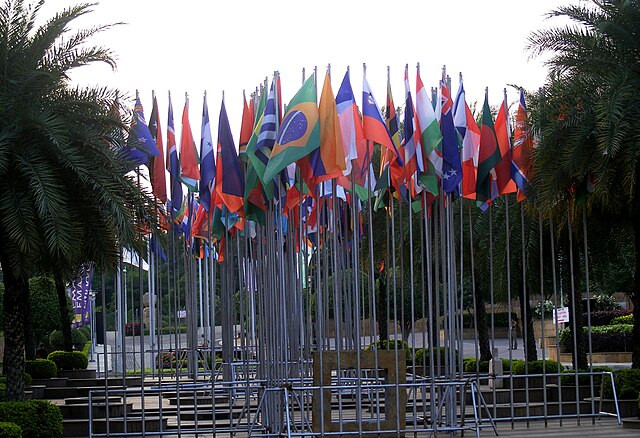On the first day of COP28, a significant breakthrough was achieved as the conference agreed on a preliminary text for the climate "loss and damage" fund, specifying funding sources and assigning the World Bank as the custodian. However, this may not be the final text, as all documents are subject to change until the conference concludes on December 12.
The host country, the United Arab Emirates, led the way by pledging $100 million to kickstart the fund, followed by Germany with $100 million, the United Kingdom with $75 million, the United States with $24.5 million, and Japan with $10 million. Additionally, the EU Climate Commissioner indicated that the EU, including Germany, is expected to collectively contribute at least $245 million. The total amount confirmed so far is $454.5 million.
The second and third days of the conference, Friday and Saturday, will see concentrated participation from national leaders, with more countries likely to pledge, putting wealthy nations under greater moral pressure. Over 160 national leaders are expected to attend Friday's events, with the King of the United Kingdom joining the UN Secretary-General and the President of the UAE to deliver the opening remarks. Countries confirmed to be led by their leaders include the UK, Brazil, and India.
On the second day, the UAE reaffirmed its commitment by announcing a $30 billion climate fund, ALTéRRA, with $25 billion for climate solutions and $5 billion to incentivize climate transition investments in the Southern Hemisphere. The fund aims to attract $250 billion in climate finance by the end of the century.
According to the preliminary agreement, the "loss and damage" fund will be sourced from wealthy industrialized nations, emerging economies, and fossil fuel-producing countries. It is designed to compensate poor and vulnerable countries for irreversible climate disaster impacts. The World Bank will manage these funds for four years and distribute them to eligible developing countries.
This development is a significant step forward. The Executive Secretary of the United Nations Framework Convention on Climate Change, Stiell, praised it as a positive start to this year's climate summit, urging governments and their negotiators to strive for unprecedented results.
Barbados Prime Minister's advisor, Persaud, lauded the agreement as a historic achievement after strenuous efforts.
However, there are questions about the fund's sustainability. Environmental organizations pointed out that the latest agreement text lacks specifics on the scale of funds needed or replenishment periods, raising doubts about its sustainability.
Research indicates that developing countries already suffer over $400 billion in losses and damages annually, a figure expected to rise.
Criticism also arises from the small amount pledged so far. Adow, Director of Power Shift Africa, welcomed the formal establishment of the fund but criticized the current funding as a drop in the ocean compared to the required scale, particularly highlighting the embarrassment of the U.S. contribution of $24.5 million.
Controversy also surrounds the choice of the World Bank as the fund's custodian. Critics question whether the World Bank, where developed countries hold more control, can truly represent the interests of developing nations.
Christian Aid warned that ensuring the vulnerable groups ultimately receive the funds requires significant work. Paoli, the organization's global advocacy head, expressed concerns about the World Bank's role as a temporary steward, calling for strict scrutiny of the fund to ensure easy and direct access for vulnerable groups.
The decision to have the World Bank manage the fund was advocated by wealthy countries like the U.S., who argued that establishing a new fund would be slower, more troublesome, and costlier than utilizing an existing institution.
However, this stance faced opposition from developing countries and activists who suspect wealthy nations prefer the World Bank due to their greater control as major contributors. The World Bank's top five shareholders are the U.S., Japan, China, Germany, and the UK.
Critics also question the World Bank's high management fees, noting that at least one similar fund managed by the bank incurred a 24% "custodial fee." The bank's financing process is criticized as slow and difficult, with most funds provided as loans rather than grants.
Many environmental activists have long harbored resentment towards the World Bank for its lack of focus on climate financing, leading to the resignation of its former president, Malpass, earlier this year, who was appointed by climate-skeptic former U.S. President Trump.
The preliminary agreement at COP28 is not entirely surprising. Before the conference, there was already a broad consensus and a framework blueprint.
Since COP27's agreement last year to establish the "loss and damage" fund, multiple meetings have been held. For instance, the fund's transitional committee met four times between March and October this year. However, negotiations broke down in October due to significant differences, mainly over who should contribute, who benefits, and who manages the fund.
Regarding contributions, developing countries emphasized that developed nations with historical emission responsibilities should compensate with grants, potentially placing a significant financial burden on the U.S. Some developed countries, including the U.S., argued for contributions from emerging economies and sought to separate China, the UAE, and Saudi Arabia from the "developing countries" category, while also expanding financing methods like taxes, public and private loans.
However, a consensus was finally reached at a meeting in early November. After two days of intense debate, parties agreed on a framework text, including key points of the agreement passed on the first day of the current conference. Regarding contributions, the text "urges" developed countries to donate and "encourages" developing countries to do the same. In terms of management, developing countries conceded, agreeing to "temporary management" by the World Bank.






